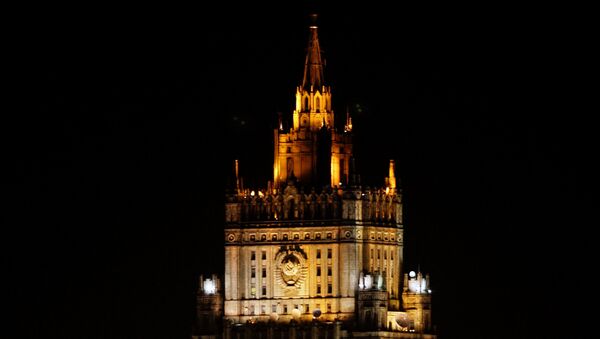Moscow lashed out at the IAEA’s latest report on Iran Wednesday, saying it undermines the international effort to defuse tensions around the Islamic republic’s nuclear program and holds it guilty without cause.
The International Atomic Energy Agency (IAEA) report does not contain any new data but is “a compilation of known facts that have been purposely twisted and given a political slant,” the Russian Foreign Ministry said in a statement posted on its website.
“The authors juggle the facts to create the impression that Iran’s nuclear program has a military component,” the statement said.
“This approach can hardly be called professional and unbiased.”
The report “a priori delivers a guilty verdict” on Iran, it said.
Iran continued carrying out nuclear weapons research after 2003, the IAEA said in a report released on Tuesday.
"The agency has serious concerns regarding possible military dimensions to Iran's nuclear program," the report said. "After assessing carefully and critically the extensive information available to it, the agency finds the information to be, overall, credible. The information indicates that Iran has carried out activities relevant to the development of a nuclear explosive device."
According to the IAEA report, Iran continued nuclear weapons research and technology development after 2003, at a time when it declared a halt in its nuclear program. The report said that Iran had temporarily frozen nuclear activities, but that there was evidence the program continued to be carried out at a more modest pace.
Iranian officials slammed the report as a distortion of facts aimed at satisfying U.S. political interests.
President Mahmoud Ahmadinejad called IAEA head Yukiya Amano a U.S. puppet.
The UN nuclear watchdog’s report has triggered a new wave of threats from Israel as some cabinet members suggested Iran’s nuclear facilities could become a target of surgical strikes.
Israeli President Shimon Peres reiterated Sunday that an attack on Iran is becoming more likely.
Russian President Dmitry Medvedev on Tuesday said increasing anti-Iranian rhetoric could lead to a catastrophe in the Middle East.


